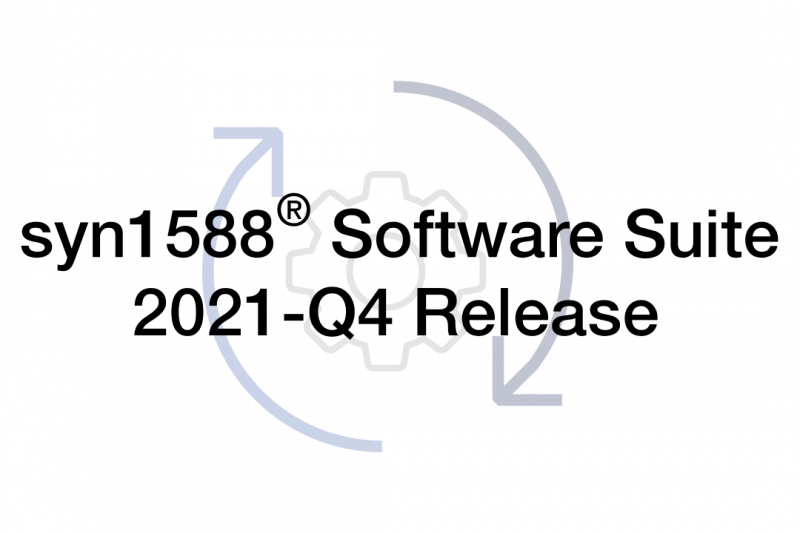We are happy to announce the new release of our syn1588® software suite.
Version v1.14 will offer you, beside stability improvements and optimizations, the following new features
New Logger
The new PTP logger is a complete re-work of the existing logging class. The new default implementation utilizes the libfmt library v8.0.1 which provides a rich feature-set for formatting log output and is part of the C++ Standard 2020.
With this new logger a connection (“log sink”) to common OS loggers has been added.
The Event Logger for Windows OS and syslog for Linux OS.
You can find a detailed description in syn1588® Upcoming Changes, which also includes a roadmap and migration recommendations for moving from the old to the new logger
Redundant Clock Synchronization Update
We introduced the new syn1588® utility redSync with release v1.12.
The current release features an extension to this utility, providing redundant synchronization via the two network interfaces of a syn1588® Dual NIC.
For more information, refer to the Application Note AN034.
Linux module: syn1588® technology, PCIe NIC, Dual NIC
The syn1588® technology, which incorporates the syn1588® Software Suite, can also be applied to non-standard systems (SoC FPGAs) that are Linux based.
The Linux module has been generalized to better support devices utilizing a device tree (SoC FPGAs).
This update also adds:
- A basic PHC interface to the syn1588® hardware clock, this feature will be extended in future releases
- A module parameter to configure a syn1588® Dual NIC to use a common hardware clock for both interfaces or two independent hardware clocks (default)
- A module parameter to silence the SMA outputs of a syn1588® PCIe Single NIC or Dual NIC
Quality-of-life Improvements
-
The syn1588® Linux module is now available as rpm package for easier installation and maintenance in RedHat and CentOS based Linux systems
-
A syn1588® Linux module kernel parameter can be used to silence the SMA outputs at system start
-
The syn1588® Software Suite components started as Windows service can now be accessed via the shared memory API from a user application. This is disabled by default. Refer to AN021 for more information.
Release Notes
You can find an overview of operating system support in syn1588® Release OS support
You can find an overview of this and the latest releases in syn1588® Release Overview
You can find details for all releases in syn1588® Software Suite Release Notes
You can find a roadmap for the future of the syn1588® Software Suite in syn1588® Release Roadmap
You can find a detailed description of the new logger in syn1588® Upcoming Changes


